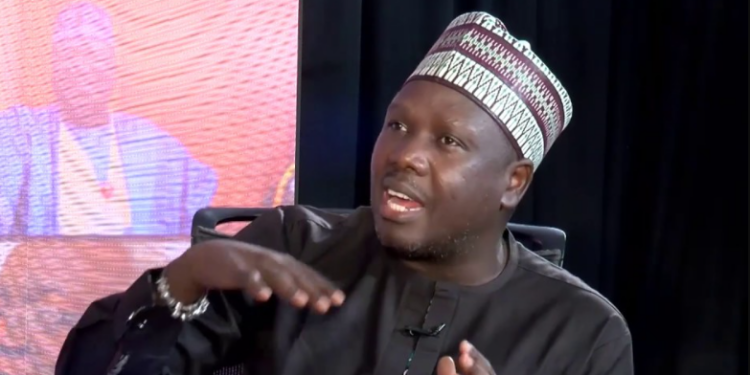- Special Adviser Daniel Bwala urged that discussions about the Tax Reform Bills remain within the National Assembly, noting second-term governors’ objections
- Bwala emphasized that opposition to the bills is politically motivated and primarily from second-term governors, not reflecting a North vs South divide
Special Adviser to President Bola Ahmed Tinubu on Policy Communications, Daniel Bwala, has urged that discussions about the Tax Reform Bills remain within the National Assembly.
He noted that only second-term governors have raised objections to the bills, while first-term governors have not voiced similar concerns.
Speaking during an appearance on Channels TV, Bwala expressed disappointment over the public opposition by some governors.
He suggested they should communicate their concerns directly to National Assembly representatives from their states instead of making public statements.
On October 3, 2024, President Tinubu submitted the Tax Reform Bills to the Senate and House of Representatives for approval.
The proposed legislation includes reforms such as renaming the Federal Inland Revenue Service (FIRS) to Nigeria Revenue Service (NRS).
In the early stages, the bills faced rejection from the Northern Governors Forum and the Northern Traditional Rulers Council, who deemed them unfavorable to the North.
Many leaders from the region claimed the reforms favored Lagos State and narrow interests while disadvantaging northern states.
The bills also faced rejection from the National Economic Council (NEC) led by Vice President Kashim Shettima. Despite this, Bwala asserted that it was inaccurate to claim the North as a whole opposed the bills.
“The political aspect is unfortunate. If you examine those criticizing the bills, they are primarily second-term governors. First-term governors have not raised similar objections.
This shows there is a political dimension to the issue,” Bwala remarked.
He dismissed framing the debate as a North vs South conflict, emphasizing that opposition stems from concerns over reduced state revenues due to derivation principles.
“Governors in states expecting revenue reductions are speaking out, not just those in the North. In debates over local government autonomy, similar dynamics emerged, not rooted in regional divisions but concerns about governance powers,” he explained.
Bwala emphasized the broader benefits of the reform for Nigerians, saying, “The reforms will positively impact over 200 million Nigerians, not just 36 state governors and the FCT Minister.
These bills include initiatives that benefit the entire nation,” he concluded.






Discussion about this post